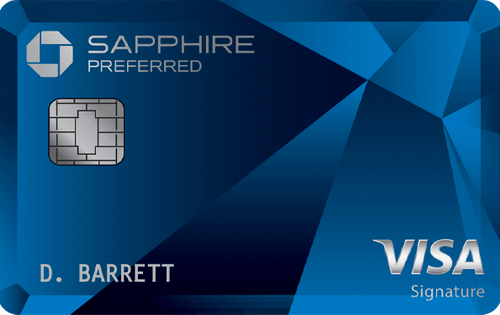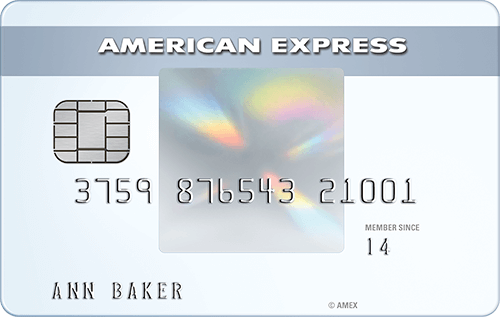If you already have a few credit cards and are considering opening another, you may wonder if there's a number of cards that's too many.
While there's no perfect answer to how many credit cards you should have, the 2019 Experian Consumer Credit Review found that the average American has four. If you can responsibly manage multiple credit cards, you can maximize rewards, annual statement credits and interest-free financing.
While having more than one credit card can be beneficial, you should always consider your credit score, finances and personal goals prior to opening a new card. A credit card application can ding your credit score roughly five points, so it's not in your best interest to apply when you're looking to take out a mortgage or trying to improve your credit.
CNBC Select breaks down whether four credit cards is too many and the average number of credit cards Americans have in every state, according to Experian's report.
Key findings
- Americans carry an average of four credit cards
- New Jersey residents have the most credit cards, on average 4.1
- Alaska and Mississippi residents have the fewest credit cards, on average 2.8
Top 10 states with the most credit cards
Residents of many states on the East Coast have multiple credit cards, and New Jersey takes the top spot of any state with an average 4.1 cards.
- New Jersey: 4.1
- Connecticut: 3.8
- New York: 3.8
- Delaware: 3.7
- Florida: 3.7
- Rhode Island: 3.7
- Maryland: 3.6
- Texas: 3.6
- California: 3.6
- Illinois: 3.6
Top 10 states with the fewest credit cards
Both Alaska and Mississippi residents have the lowest average number of credit cards, 2.8. If you have fewer credit cards than the average four, that's OK. It's up to each individual to decide the right number of credit cards for their lives.
- Alaska: 2.8
- Mississippi: 2.8
- Oklahoma: 2.9
- Wyoming: 2.9
- Montana: 2.9
- District of Columbia: 3
- Alabama: 3
- Vermont: 3
- Arkansas: 3
- South Dakota: 3
How many credit cards is too many?
While Americans carry an average of four credit cards, that doesn't mean four cards is ideal. It all depends on your situation.
Credit card optimizers might be curious if there's a number of credit cards that's too many. Thankfully, there really isn't a one-size-fits-all answer. It all depends on how responsible you are at managing multiple cards.
If you always pay on time and in full, then you can open as many credit cards as you want. On the other hand, if you often carry a balance or miss your payment deadline, it's in your best interest to limit the number of cards you open.
Choose the right mix of credit cards
If you decide to open another credit card, it's a good idea to consider how each card can help you save money on your spending. You can take advantage of increased benefits by selecting a mix of cards, such as travel rewards, bonus cash back on select purchases, introductory 0% APR cards, and more.
Here are some of our top choices in popular categories.
Travel credit cards
American Express® Gold Card

-
Rewards
4X Membership Rewards® points when you dine at restaurants worldwide and shop at U.S. supermarkets (on up to $25,000 per year in purchases, then it drops to 1X), 3X points on flights booked directly with airlines or on amextravel.com, 1X points on all other purchases
-
Welcome bonus
35,000 Membership Rewards® points after you spend $4,000 on eligible purchases within the first 3 months from account opening
-
Annual fee
-
Intro APR
Not applicable
-
Regular APR
See rates and fees
-
Balance transfer fee
See rates and fees
-
Foreign transaction fee
-
Credit needed
Excellent/Good
On American Express's secure website.
Chase Sapphire Preferred®

-
Rewards
2X points on travel and dining worldwide, 1X points on all other purchases
-
Welcome bonus
60,000 bonus points after you spend $4,000 on purchases in the first 3 months from account opening — worth up to $750 toward travel when you redeem through Chase Ultimate Rewards®
-
Annual fee
-
Intro APR
-
Regular APR
17.49% to 24.49% variable on purchases and balance transfers
-
Balance transfer fee
Either $5 or 5% of the amount of each transfer, whichever is greater
-
Foreign transaction fee
-
Credit needed
Excellent/Good
-
Terms apply.
On Chase's secure site
Cash-back credit cards
Citi® Double Cash Card

-
Rewards
2% cash back: 1% on all purchases and an additional 1% after you pay your credit card bill
-
Welcome bonus
No current offer
-
Annual fee
-
Intro APR
0% for the first 18 months on balance transfers; N/A for purchases
-
Regular APR
15.49% to 25.49% variable on purchases and balance transfers
-
Balance transfer fee
Either $5 or 3% of the amount of each transfer, whichever is greater
-
Foreign transaction fee
-
Credit needed
Excellent/Good
-
Terms apply.
On Citi's secure site
Discover it® Cash Back

-
Rewards
5% cash back at different places each quarter after you activate bonus categories (on up to $1,500 in purchases, then 1%). Plus, unlimited 1% cash back on all other purchases.
-
Welcome bonus
At the end of your first year, Discover automatically matches all the cash back you earned
-
Annual fee
-
Intro APR
0% for the first 14 months on purchases and balance transfers
-
Regular APR
13.49% to 24.49% variable on purchases and balance transfers
-
Balance transfer fee
3% intro balance transfer fee, up to 5% fee on future balance transfers (see terms)*
-
Foreign transaction fee
-
Credit needed
Excellent/Good
On Discover's secure site
Intro 0% APR credit cards
Citi Simplicity® Card - No Late Fees Ever

-
Rewards
-
Welcome bonus
-
Annual fee
-
Intro APR
0% for the first 21 months on balance transfers and 0% for the first 12 months on purchases
-
Regular APR
16.24% to 26.24% variable
-
Balance transfer fee
5%, minimum $5
-
Foreign transaction fee
-
Credit needed
Excellent/Good
-
Terms apply.
On Citi’s secure site
Amex EveryDay® Credit Card

-
Rewards
2X Membership Rewards® points at U.S. supermarkets on up to $6,000 per year in purchases (then 1X), 1X Membership Rewards® points per dollar spent on all other purchases
-
Welcome bonus
Earn 10,000 Membership Rewards® points after you make $1,000 in purchases in your first 3 months
-
Annual fee
-
Intro APR
0% for the first 15 months on purchases and balance transfers
-
Regular APR
14.49% to 25.49% variable APR
-
Balance transfer fee
-
Foreign transaction fee
-
Credit needed
Excellent/Good
Information about the Amex EveryDay® Credit Card has been collected independently by CNBC and has not been reviewed or provided by the issuer of the card prior to publication.
Average number of credit card by state
| State | Avg. Credit Cards |
|---|---|
| Alabama | 3 |
| Alaska | 2.8 |
| Arizona | 3.4 |
| Arkansas | 3 |
| California | 3.6 |
| Colorado | 3.4 |
| Connecticut | 3.8 |
| Delaware | 3.7 |
| District of Columbia | 3 |
| Florida | 3.7 |
| Georgia | 3.4 |
| Hawaii | 3.3 |
| Idaho | 3.2 |
| Illinois | 3.6 |
| Indiana | 3.2 |
| Iowa | 3.1 |
| Kansas | 3.3 |
| Kentucky | 3.2 |
| Louisiana | 3.1 |
| Maine | 3.1 |
| Maryland | 3.6 |
| Massachusetts | 3.6 |
| Michigan | 3.4 |
| Minnesota | 3.3 |
| Mississippi | 2.8 |
| Missouri | 3.3 |
| Montana | 2.9 |
| Nebraska | 3.4 |
| Nevada | 3.6 |
| New Hampshire | 3.6 |
| New Jersey | 4.1 |
| New Mexico | 3.1 |
| New York | 3.8 |
| North Carolina | 3.3 |
| North Dakota | 3.2 |
| Ohio | 3.5 |
| Oklahoma | 2.9 |
| Oregon | 3.1 |
| Pennsylvania | 3.6 |
| Rhode Island | 3.7 |
| South Carolina | 3.2 |
| South Dakota | 3 |
| Tennessee | 3.1 |
| Texas | 3.6 |
| Utah | 3.2 |
| Vermont | 3 |
| Virginia | 3.5 |
| Washington | 3.2 |
| West Virginia | 3.1 |
| Wisconsin | 3.3 |
| Wyoming | 2.9 |
| Source: Experian |
For rates and fees of the American Express® Gold Card, click here.
For rates and fees of the Amex EveryDay® Credit Card, click here.
Editorial Note: Opinions, analyses, reviews or recommendations expressed in this article are those of the CNBC Select editorial staff’s alone, and have not been reviewed, approved or otherwise endorsed by any third party.
"Many" - Google News
January 13, 2020 at 08:08PM
https://ift.tt/3aajvPV
Americans have an average of 4 credit cards—is that too many? - CNBC
"Many" - Google News
https://ift.tt/2QsfYVa
Shoes Man Tutorial
Pos News Update
Meme Update
Korean Entertainment News
Japan News Update
Bagikan Berita Ini














0 Response to "Americans have an average of 4 credit cards—is that too many? - CNBC"
Post a Comment